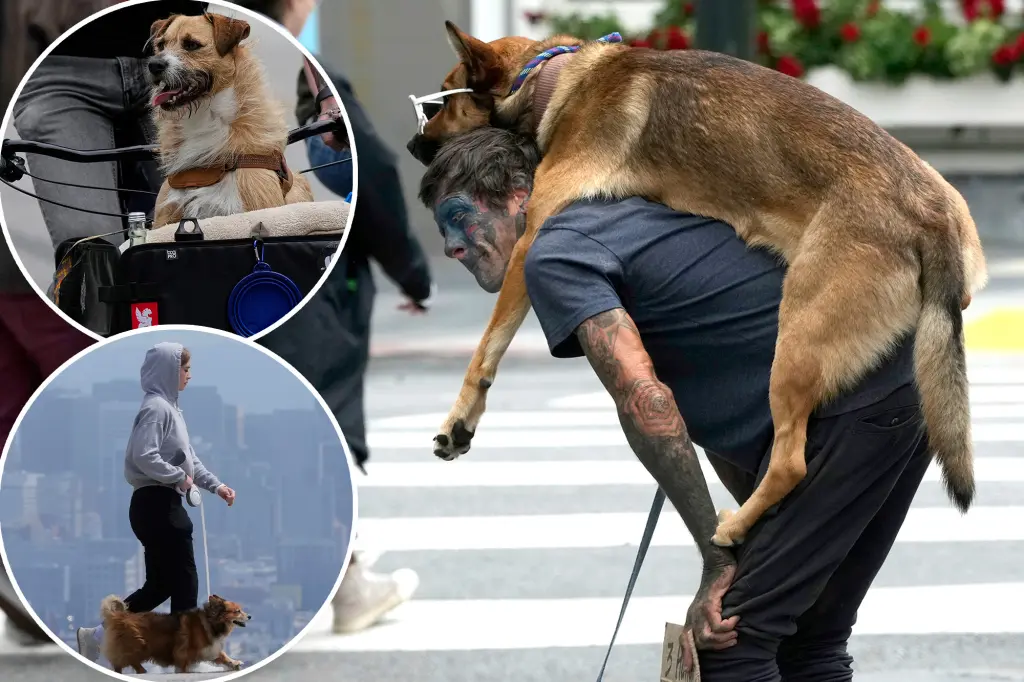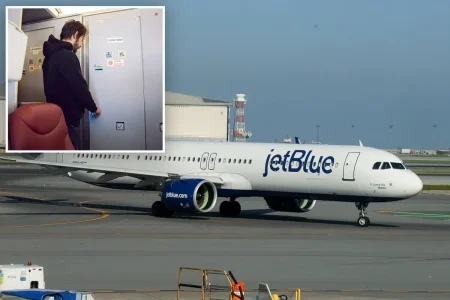San Francisco’s Dog Dilemma: When Man’s Best Friend Becomes a Nuisance
In the vibrant city of San Francisco, a growing tension is brewing between dog owners and other residents. While the city was recently crowned by Forbes as the best city for dogs this year, with 109 dog-friendly activities listed on BringFido’s website, not everyone is celebrating this canine-friendly atmosphere. A recent Reddit thread on “r/sanfrancisco” revealed that many residents are “running out of patience” with dogs and their owners, particularly those who ignore leash laws and bring their pets into grocery stores and other inappropriate spaces.
The frustration extends beyond mere inconvenience. One resident, Rose Crelli, shared her experience of having a dog launch itself at her pastry while she was enjoying coffee at Alamo Square Park, covering it with drool before the owner simply walked away without acknowledging the incident. Another new resident and dachshund owner, Chandra Wilson, expressed shock after witnessing a dog defecate inside a business while people looked on in disbelief. A local Trader Joe’s manager reported that the number of dogs entering the store has become unmanageable, despite health codes prohibiting animals in grocery establishments. These incidents highlight a growing disconnect between responsible pet ownership and the reality of how some dogs are being managed in public spaces.
The legal framework in San Francisco clearly outlines expectations for dog owners. The San Francisco Duties of Owners or Guardians (Health Code § 41.12) prohibits dogs from being off-leash except in designated areas, with fines starting at $50 for first offenses and escalating to $1,000 for repeat violations within a year. The Golden Gate National Recreational Area proudly boasts being “the only park in the National Park Service to designate particular areas for allowing responsible dog walking off-leash when under voice and sight control.” However, reports of off-leash dogs have increased by 6% over the past year according to The Wall Street Journal, suggesting that many owners are either unaware of these regulations or choosing to ignore them.
Part of the challenge lies in the enforcement of existing rules, particularly when it comes to distinguishing between service animals and pets. As one Reddit user pointed out, “There needs to be a change to the current state of the law on what businesses can demand for proof of a service animal. Right now, all an employee can do is ask if it’s a service animal and what service the dog is trained to perform. No documentation required.” This creates a loophole where some pet owners falsely claim their dogs are service animals to gain access to restricted areas, while businesses fear legal repercussions or negative public relations if they challenge these claims. This dynamic makes enforcement difficult and frustrates those who observe the rules.
The conversation extends to basic courtesy and consideration for others. “You aren’t special. If you need to go grocery shopping, leave your dog at home like the rest of us do,” commented one Reddit user, echoing a sentiment shared by many who feel that some dog owners expect special accommodations. Another user called for increased enforcement: “We need cops to write citations for unleashed dogs. They’re supposed to—it’s up to a $500 fine in San Francisco.” These comments reflect a desire for accountability rather than animosity toward dogs themselves. Even Chandra Wilson, who takes her dachshund “everywhere she is allowed to,” emphasizes the expectation that “dogs have manners,” suggesting that responsible dog ownership is compatible with urban living when proper boundaries are respected.
San Francisco’s struggle with its dog population reflects a broader challenge in dense urban environments: balancing the joys of pet ownership with the needs and comfort of the wider community. While the city offers numerous dog-friendly spaces and activities that enhance the quality of life for pet owners, the increasing reports of problematic behavior indicate that a cultural reset may be needed. This isn’t about choosing between being a dog-friendly city or not—it’s about fostering a culture of responsible pet ownership where dogs are properly trained, leashed in appropriate areas, kept out of establishments where they’re prohibited by health codes, and where owners promptly clean up after their pets. As San Francisco continues to navigate this issue, finding this balance will be essential to maintaining its reputation as a dog-friendly city while ensuring that all residents can enjoy public spaces comfortably.














